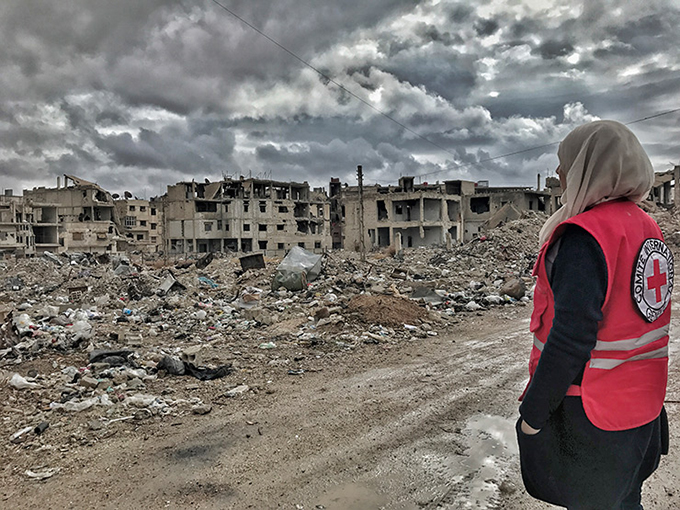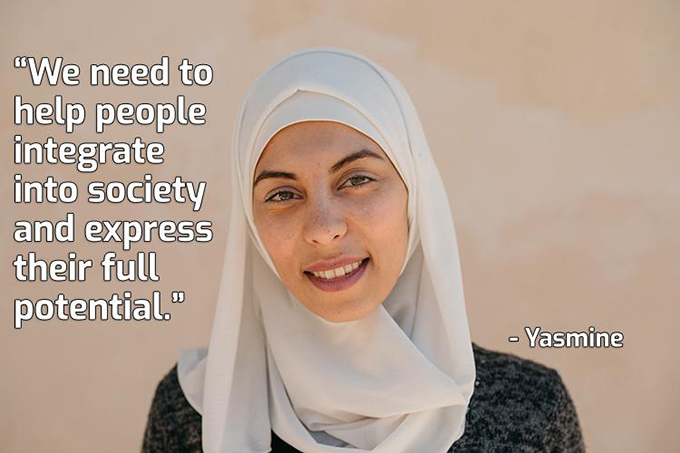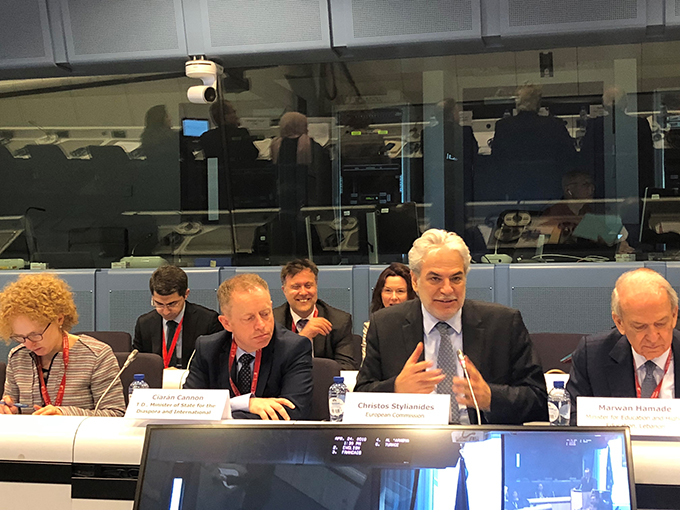Ireland’s support to Syria Crisis response exceeds €100 million
News
27 April 2018
The Syria crisis is now in its eighth year and a solution to the conflict has yet to be found. The conflict has had a devastating impact on civilians. Up to half a million people have been killed, over 6 million people are displaced internally, and a further 5.5 million have fled to neighbouring countries and the wider region. Since the crisis began, Ireland has provided over €100 million to support those affected both inside Syria and across the region. This is Ireland’s largest ever response to a single humanitarian crisis. Behind the numbers are the people affected by the violence – each with their own story. The stories below are part of the ‘Everyday Heroes’ campaign by the European External Action Service to show the human impact of the Syrian conflict and how the survivors are working to improve their lives and the lives of their compatriots.

Tarek’s story
After the revolution started, the area where Tarek lived in Syria fell into the hands of Daesh. Being a psychologist was considered blasphemous by Daesh and Tarek feared for his and his family’s safety. He left for Turkey and began working as a psychologist with Doctors of the World, an international NGO. As well as his practical skills and training as a psychologist, its Tarek’s capacity for empathy that helps him connect with his patients, having experienced some of the same things as them: “Being Syrian and a psychologist, I am in a better position to understand the needs of the people who have lived through the same exodus,” says Tarek.
Farah’s Story
Farah is six years old and lives in Zaatari camp in Jordan. She has been going to school in the camp and her favourite subjects are Arabic, Science and English. She dreams of becoming a teacher to be able to help children learn and a poet because poetry “brings joy to their hearts”.
Rabia's story
Rabia teaches adult literacy to Syrian women who like her, came to the Bekaa valley in Lebanon in search of safety. It gives her solace that the landscape and the people of the Bekaa are similar to that of Syria and the proximity to Syria means she doesn’t feel quite so far from home. For Rabia, training women and empowering them by teaching them to read and write is vital to protect them from potential exploitation, but also to keep them active. People need a purpose and dignity to live their lives and they don’t want to feel as though they are a burden or recipients of charity. “We don’t want to be given food. We want to work and learn,” says Rabia
As well as teaching practical skills, Rabia also offers emotional and psychological support to other women: “We all live difficult situation, so through these lessons I supported them psychologically, the women return to her house happy not only because they learned the language, but because she is able to deal with her son and not get angry at him, we are very stressed out and need these skills that complement education.”
Rabia wants to stay active and engaged so that when she and others like her return to Syria, they can play an active role in rebuilding their country. “We will certainly return to rebuild Syria. We can’t change reality, but at least we can try to strengthen ourselves in order to change this reality.”
The second Brussels Conference “Supporting the future of Syria and the region” took place this week to rally support for the 13.1 million people who are in need of humanitarian assistance due to this crisis. At this conference, Ireland pledged €25 million in 2018 to alleviate the suffering of those affected. Ahead of the conference, Tánaiste Coveney reiterated Ireland’s support for those most affected by the ongoing crisis:
“The scale of the challenges to be addressed is enormous: that is why Syria is the focus of the largest ever Irish response to a single crisis.”
Minister for the Diaspora and International Development, Ciarán Cannon, explained how Ireland would ensure reliable and significant support to organisations working with Syrians affected by the conflict:
“Ireland has committed to providing multi-year, predictable humanitarian support to Syria and the region. This will enable the partners with whom we work to plan and implement their critical programmes of assistance more effectively.”

Since 2012, Ireland has provided €108 million in humanitarian assistance to the victims of the conflict in Syria and, to date in 2018, €15.5 million has been pledged to UN and Red Cross partners to support their work in Syria. In addition to funding, Ireland also deploys members of its Rapid Response Corps to the Middle East to provide support to a number of UN agencies on the ground. The conference on Syria aimed to keep the international response to the crisis at the top of the international agenda and Ireland‘s pledge at the conference is proof that Ireland is playing an important role in international efforts to alleviate the suffering of the Syrian population.
|

